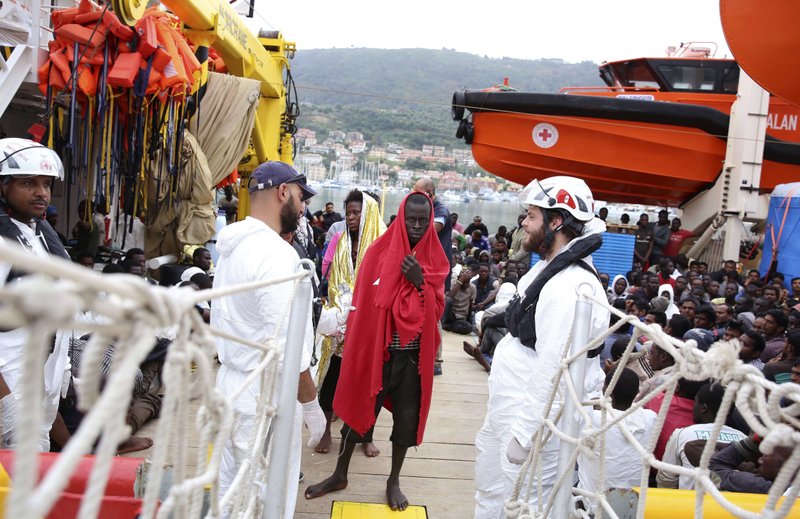BRUSSELS -- In the face of opposition to migrant quotas, the European Union signaled Monday that it might not take action against countries refusing to share asylum seekers from Greece and Italy as long as enough people find new homes.
EU countries agreed in September 2015 to relocate 160,000 people from overwhelmed Greece and Italy by September 2017 and set obligatory quotas for each nation.
While only about 7,000 have been moved more than halfway through the program, the European Commission said the pace is accelerating and could meet the goal by the target date.
European Commission spokesman Natasha Bertaud said "it should be possible to relocate everyone, and that is what it is important to focus on."
Asked when legal action might come against those refusing to help, she said that if the overall target "is achieved, then that was the purpose of the relocation program in the first place."
The European Commission does, however, "reserve the right to take action" against those who don't comply.
As of Friday, Austria, Denmark and Hungary hadn't accepted any asylum seekers under the program.
Hungary even called a referendum on whether mandatory quotas should be imposed by the EU, but not enough people turned out to vote.
Meanwhile, the president of Hungary's far-right Jobbik party said the party will present a draft in the National Assembly adding anti-migrant clauses to the constitution.
While nearly identical to amendments sought by the government but rejected by the National Assembly last week, Jobbik's version would also ban foreigners from acquiring Hungarian residency permits in exchange for purchasing a special state bond for $323,000.
The constitutional amendments initially proposed by Hungarian Prime Minister Viktor Orban were meant to strengthen the government's position against any future European Union plan to resettle asylum seekers among the 28-nation bloc's members.
Orban's Fidesz party was counting on Jobbik's support to pass the amendments Nov. 8, but Jobbik President Gabor Vona tied their backing to the elimination of the residency bonds purchased mostly by Chinese and Russian citizens.
Elsewhere, the first of hundreds of refugees that Germany promised to take each month from Italy prepared to leave.
Italian Interior Ministry officials said about 200 Eritrean asylum seekers would be flown today from Rome to Munich. They said Monday that the transfer is the first tranche of the 500 people that Germany pledged in September to take monthly from Italy.
Earlier, French Prime Minister Manuel Valls visited one of the many shelters set up throughout France to relocate thousands of migrants evacuated from a sprawling slum camp in northern France.
Two dozen anti-migrant demonstrators staged a protest Monday in Croisilles, a small northern town with less than 2,000 inhabitants, where a former retirement home has been turned into a shelter.
Nearly 40 migrants, mainly Sudanese, were relocated there after the slum in the northern city of Calais was cleared out late last month.
Valls said most of the migrants who used to be in the Calais camp and have been scattered in some 450 shelters across France will "undoubtedly" be entitled to refugee status.
Information for this article was contributed by Pablo Gorondi and staff members of The Associated Press.
A Section on 11/15/2016
